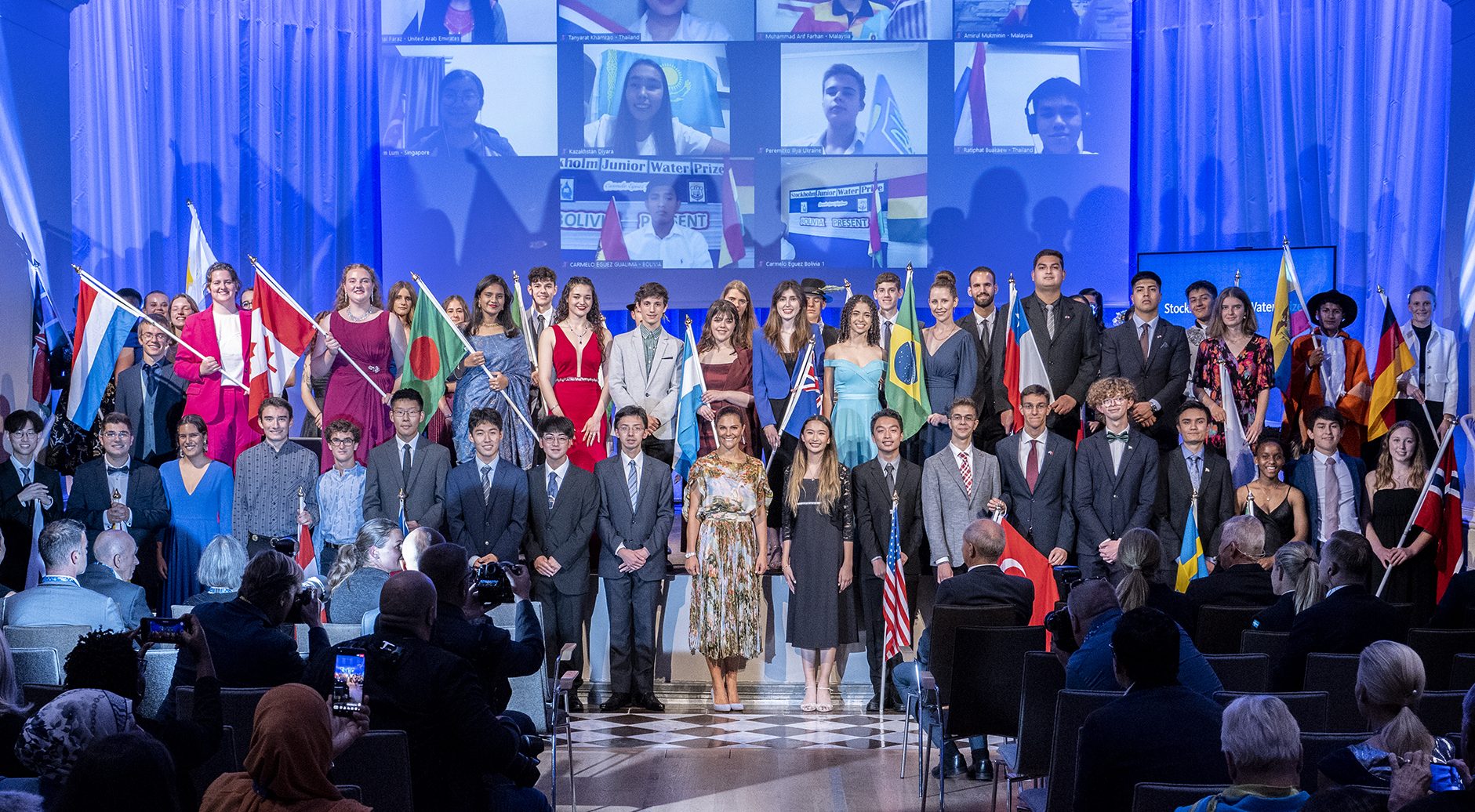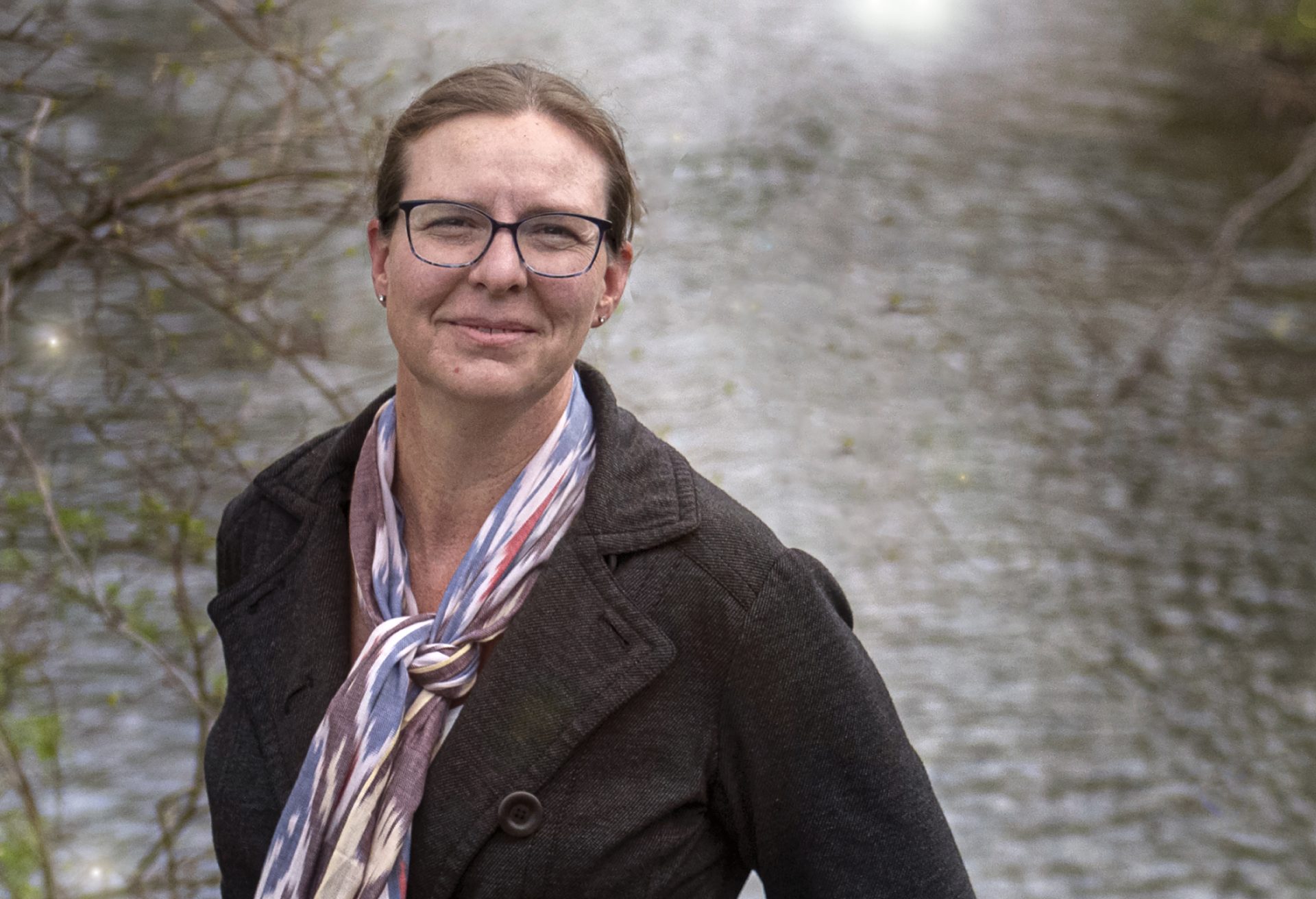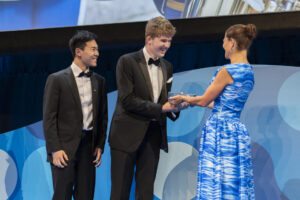“Students are capable of extraordinary work”
“I love the power of students to ask questions and not accept the status quo.”
Tell us about how you yourself got into water.
I grew up in Oregon in the USA and when I was 16, I wrote a history paper about water problems in California. I have been working on water issues ever since.
Interestingly enough, I happened to be in Stockholm for the very first World Water Week in 1991. That year I was an exchange student in the Finnish city of Turku and happened to visit Stockholm when they were having a city-wide party for water, which I of course thought was just awesome.
My first year at Dartmouth College (New Hampshire, USA), I took a course on water resource management which led to my interest in water policy questions. After taking that class, I wrote a research proposal to look at Native American rights to water more closely. This research project led me to meeting an attorney at a water law conference in North Dakota. He represented the Confederated Tribes of Warm Springs (Oregon) who were negotiating for their federal water rights; he invited me to follow the negotiation process. So I did that for the next three years while effectively creating my own program of study on water.
My senior year in college I did a senior fellowship project and compiled my work into a significant project on this important water negotiation. This work as a student has led to a career working on water issues.
You found your passion for water at a young age, how has that shaped you?
I think people underestimate what students are interested in and capable of. From my own experience, I know what it means to meet someone who simply says, “Come with me, come participate in these conversations” and is willing to open doors for you. Hopefully, the Stockholm Junior Water Prize and World Water Week can play that role.
We need to invite people to participate at an earlier age than what is common. High school students have fantastic ideas, so how do we foster that? There is a lot of discussion about engagement of youth, but sometimes it feels like it’s just something we say – when you look around at who is in the room, young people are still not invited to be part of discussion about serious water issues.
What can young innovators contribute?
When we in the Jury interview students, we see such amazingly creative approaches to very pressing issues like contamination of water. How do you really address these concerns and clean up contaminated water? We need the students’ creative ideas, enthusiasm, and self-confidence where they just roll up their sleeves and test new things. That is how innovation happens.
I had a chance to talk to Annabelle Rayson who won the Prize last year. Her enthusiasm for finding a different way to approach water quality concerns of the Great Lakes was just amazing. Same thing with Mishal Faraz who won the People’s Choice Award for using gamification to discourage plastic waste. Or the many student projects that look at how human hair can be used to clean up oil spills. I can just go on and on – we have so much to learn from this way of thinking and many ideas can be implemented right away.
“We need the students’ creative ideas, enthusiasm, and self-confidence where they just roll up their sleeves and test new things. That is how innovation happens.”
Last year, all Stockholm Junior Water Prize winners were women, what does that mean?
When I started to work on water issues 30+ years ago, I would be the only woman in the room. This was often true for many years, even as my career shifted into working as a mediator on complex water issues.
One day I looked around at an important water mediation session and noticed things had changed: most people in that room were my generation and women and men were working together to solve water issues.
For the future, it is very important that we have this diversity. We can’t afford to lose half the population, their perspectives, and potential answers. Globally we see the severe water consequences for women’s and girls’ education when there is a lack of water. For example, I’m watching with heartbreak the news in Afghanistan as women’s opportunities have been greatly curtailed and women’s education has been lost.
One of my students discussed the choice she felt she had to make – should she focus on water issues or gender issues? But to me, that is not necessarily a choice, they are closely tied together. It is heartening to see how many women are now coming into the water space, finding jobs, and helping build the solutions that really matter – locally, regionally, nationally, and internationally.
Lara Fowler
- Lives: State College, Pennsylvania
- Works: Professor of Teaching, Penn State Law; interim Chief Sustainability Officer, Penn State, interim Director, Penn State Sustainability Institute, Affiliate Faculty, School of International Affairs, Penn State University, USA
- Family: 16-year-old son, 13-year-old daughter.
- Hobbies: Skiing, gardening, hanging out with the kids and a lot of baking. “My specialty is kardemummabulle, Swedish cardamom buns.”
- Fun fact: In high school and college, Lara was a competitive cross-country skier.
Discover Stockholm Junior Water Prize
Stockholm Junior Water Prize is a competition for students aged 15 to 20 who have developed research projects that can help solve major water challenges. The competition attracts tens of thousands of entries from over 40 countries.
Find out more about SJWP








